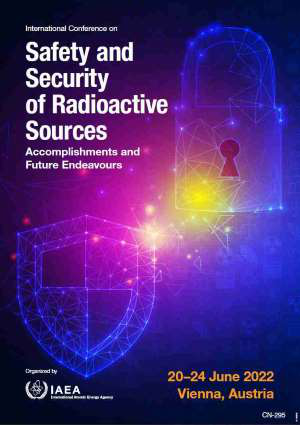Speaker
Description
The use of radiation sources has over the years increased exponentially due to technological advancement over decades; these material are being subjected to the requirement that, the use should overall do more good than harm. Application of these sources can be found in medicine, agriculture, industry (mining, oil and gas, breweries and other bottling companies), education and research and many more. The application in the Oil and gas and petrochemical industries starts from non-destructive testing/radiography testing during construction phase of a project to use of radioactive source instruments for level indication, density measurement etc. during Industrial operations. The techniques such as radiotracers as well as radiological techniques known as Non-Destructive Test can effectively contribute to the reduction in cost of drilling and production operations as well as effective means to determine leakage and defects in the pipes and connection. Despite its numerous beneficial uses, it is associated with hazard. The hazard from radiation exposure is an increased risk of cancer and the amount of risk depends on the radiation dose received, the time over which the dose is received, and the body parts exposed. However, the risks can be minimised when the radiation source is handled and managed properly. To maximize benefits and minimize hazards associated with utilization of radiation-based technologies, national radiation protection standards are implemented. Utilize of radiation sources is controlled by international and national rules and regulations. The use of radiation sources needs regular services. The oil and gas companies themselves are not experts in every aspect of the technology applied in their industry. Frequently the necessary expertise is provided to the industry by specialized support organizations. Obviously it is in the interests of the oil and gas industry to demonstrate an appropriate standard of basic radiation safety, environmental protection and waste management and to have a common understanding of requirements and controls to establish efficient and safe operations. In general Nuclear Regulatory Authority of Ghana requires operators to obtain permits prior to transport, use and storage of radioactive source, use appropriate personnel protective and radiation monitoring equipment. The Authority also requires operators to provide training and create awareness for safe handling and use of radioactive materials and radiation producing devices. They ensure proper controls are put in place to protect life, health, property and the environment from the harmful effects of ionising radiation, while allowing beneficial practices involving exposure to ionising radiation. One major challenge identified in this area is the movement of the sources from a company to a sister company. Another challenge is that apart from the sources which are offshore, some sources are sent onshore during operation hence the regulators do not get the chance to see all the sources during their routine inspection. These issues pose both safety and security concerns which need to be addressed. The paper identifies three fundamentals challenges for safety and security of radioactive sources use in oil and gas industries in Ghana which are; developing an appropriate regulatory system, implementing the regulatory system at the facility level and establishment of measures to address the potential loss of control of radioactive sources.
| Country OR Intl. Organization | Ghana |
|---|

